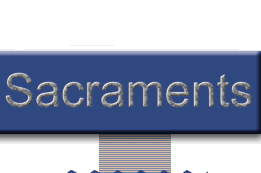



|
|
Overview |
|

![]()
God's Presence in Word and Spirit.
"The unexamined life is not worth living."
Socrates
We can start thinking about sacraments by focusing on how God is present. This book looks at the specific idea that God's presence is revealed in two complementary ways: in Jesus, the Word of God, who is God in the flesh who lived among us, and as Spirit, God's energy dwelling in us and in the world around us. We use Sacraments to appreciate God's presence in these two modes.
We can speak of God's presence in ordinary every day events of our lives: our experiences, our relationships, the circumstances in which we find ourselves. These are Traces of God. We are not always aware of this Presence, this personal God, who is constantly breaking into our lives as Word and Spirit. Sacraments seek to remedy that gap in our awareness - they keep reminding us to appreciate the reality of our lives in God. God is already there. There is a spiritual movement of our lives, our world toward sacrament.
Sacramental celebrations show us one very good way of being aware, of ‘appreciating God's presence’. I have often called them, among other things, ‘awareness exercises’. They invite us to be fully aware by helping us to reflect on the meaning of what is going on in life's experiences - even the bad, difficult ones, as well as the joyful, pleasurable ones and by calling us to new moments of grace, the knowledge of a living and loving God present in our lives.
Sacraments help us reflect so that events and relationships are appreciated with deep meaning that Jesus can give us. The God of Jesus was revealed as a down-to-earth, creative, personal God who replaces condemnation, judgment, hate, confusion, bitterness, destructiveness, revenge with compassion, understanding, patience, love, and forgiveness.
Sacraments are the celebration of the discovery of this God and the meaning this God gives to our lives in Jesus. They speak a real Word to us, the WORD OF GOD, and use the language of SYMBOLS to express the real presence of this creative God.
Sacraments are also the invitation to discover life's meaning and the God of Jesus. They offer us a new moment of Grace, an appreciation of the Living and Loving God present to us. As we go on our life's journey, they speak to us of the indwelling SPIRIT.
This book seeks to explore this meaning and the language of our Sacramental life as we begin by looking at God and the presence of God in Jesus and the Church (Sections 1-4). We will offer a broad understanding of sacramentality. We will speak of each of the classic "seven" sacraments of the Catholic Tradition (Sections 5-10) and how they gather together in the moment of dying, death and their Rites (Section 10). The conclusion speaks of the dynamism of Sacramental Life. The Journey theme will help us with all this.
In Sections 4-10 we examine what the WORD of God says about a particular sacrament; we explore the SYMBOLS used to express the presence of God breaking into our life; we speak of the RITE of the Church that expresses the God present in Word and Spirit. Some pastoral, or historical or theological notes will be interspersed through each discussion showing something of the interdisciplinary approach used in sacramental theology today.
There is a Chinese proverb "May you live in interesting times". Some argue whether it is a blessing or a curse! The movement and renewal in the Church in recent years makes now an interesting time. There has been a challenging dialogue in sacramental theology between what is actually done and what should be done. We live in an interesting time that is engaged with key issues like:
- the role of the Spirit who can move us from passive ritual to a more dynamic Sacramental life;
- the challenge of the social, communal dimension of sacramental life, that goes hand in hand with the personal, individual dimension.
- the cultural context of sacraments that leads people to challenge each cultural system and its values,
- the competency of the symbolic language of sacraments that leads us to full, active, conscious participation.
A journey has a unity about it. One of the problems when talking about the sacraments is that we tend to separate them out and talk of each of them separately. It is better to see them as linked to one another as parts and elements, aspects of the one journey of the life of faith. So take this book as a unit rather than as separate sections. All the chapters and ideas lean on one another for support.
Anthony Kain Adelaide 1993.
|
|
|


Copyright © Anthony Kain 2009